Technology is constantly reshaping our lives, from the newest devices to sophisticated software that was unimaginable 20 years ago. Like, every day, there is something new to behold coming from the bros in Silicon Valley (or other places, but that’s the only one that springs to mind). You didn’t think the dating world would be left behind, did you? Of course not! In fact, the entire idea of love and companionship has shifted so dramatically in the last decade, with dating apps making it easier than ever to find love. But it doesn’t stop there.
Say hello (hi!) to the burgeoning era of AI Companions—these sophisticated lil’ buggers promise to open up a whole new world for those looking for love and connection. But as interesting as it is, this AI-driven trend raises a lot of questions: Are AI companions the future of dating? Can they really understand and respond to the complicated and varied emotional needs of real human beings? And are they safe?
Let’s go meander around this compelling new frontier of the intersection of AI and dating and what it could mean for the future of romantic relationships!
Evolution of Dating and Technology
Dating, a ritual about as old as humanity itself, has continuously evolved alongside tech world advancements. The journey from old-school matchmaking to today’s online dating landscape is a testament to this progression. In the past, relationships mostly kicked off through personal connections, random meetings, or arranged setups. But along came the internet and mobile technology, which meant you didn’t have to rely on your friends, a dreamy meet-cute, or well-meaning family members trying to fix you up–you could do it all by yourself!
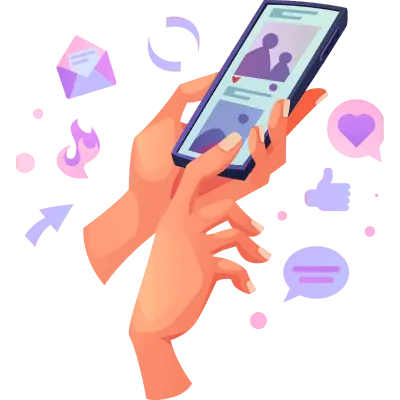
The Digital Shift
- Online Dating Apps: The late 20th and early 21st centuries saw the explosion of online dating apps. These amazing platforms allowed singles to search for partners beyond their social circles (and on the other side of the world) based on their specific preferences.
- Swipe Culture: The introduction of dedicated mobile apps brought with it a new wave, famously known as the ‘swipe culture’ (thank you, Tinder). It simplified the dating process into a fast-paced, pretty much-gamified experience, focusing on speed and quantity of matches.
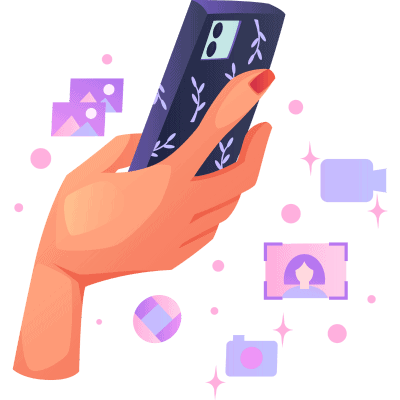
The Role of Social Media
Social media platforms also played a starring role, blurring the lines between social networking and dating. They offered more casual and indirect ways of forming romantic connections.
This technological development paved the way for much more advanced, AI-driven solutions in dating. In the following section, we’ll get into what AI companions are and how they represent the next leap in this transformative trip.
AI Companions: What Are They?
In the unfolding narrative of dating and tech, AI companions represent a jump into a future once imagined only in sci-fi movies. But what exactly are these AI companions?
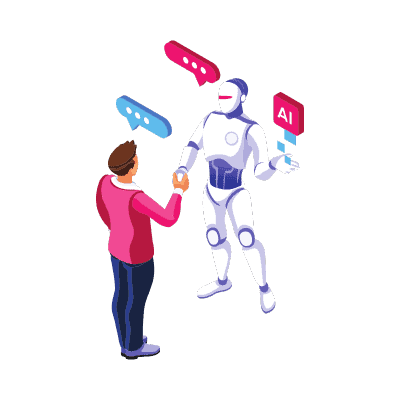
Defining AI Companions
- Beyond Virtual Assistants: While virtual assistants like Siri and Alexa respond to commands, AI companions are designed to offer a more substantial level of interaction. They constantly learn from conversations, adapting to the user’s personality and interests.
- Emulating Human Interaction: These AI entities use sophisticated algorithms to simulate human-like conversations, showing empathy, humor, and even the ability to remember past discussions–we can’t lie, this is pretty impressive.
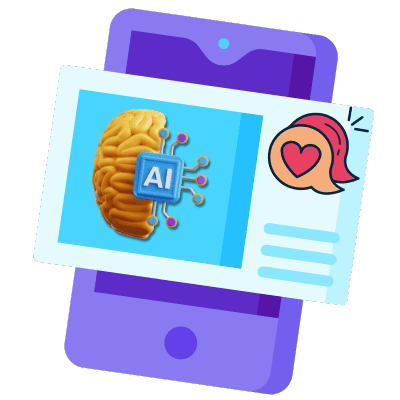
Current Capabilities
- Conversational Skills: AI companions can have meaningful convos, offering a level of companionship that goes beyond just getting info for users, like Siri and Alexa.
- Emotional Intelligence: Some are designed with a form of emotional intelligence, allowing them to respond appropriately to the emotional tone of the user.
While they are in no way a substitute for human interaction, AI companions do offer an interesting mix of 24/7 availability, neutral listening, and adaptive learning, making them a thought-provoking addition to the dating world at large.
Prospects and Challenges in AI-Based Dating
The integration of AI companions into the dating scene is not without its possibilities—and challenges. We want to focus on both the potential benefits and concerns of this growing trend.

Prospects
- Constant Availability: AI companions are available 24/7, 365 days a year, offering a sense of connection for people who are feeling lonely or isolated.
- Unbiased Interaction: They provide a judgment-free zone where people can honestly express themselves without any fear of criticism or rejection.
- Personal Growth: Interacting with an AI companion can help people understand their own needs and preferences in romantic relationships, potentially making them better partners in their human relationships.

Challenges
- Lack of Physical Presence: AI companions cannot provide physical presence and touch, which are really important (and necessary) aspects of a romantic relationship.
- Emotional Depth: While AI can mimic emotional responses, there is an ongoing debate about whether these interactions lack the depth and realness of human emotions.
- Dependence and Isolation: There’s a risk that over-reliance on AI for companionship could lead to further social isolation and stunt or hinder the development of human relational or social skills.
This particular combo of technology and human emotion in AI-based dating is genuinely impressive, but it is important to acknowledge and confront the limitations that come with it.
Ethical and Societal Implications
The advent of AI companions in dating raises technological, ethical, and societal questions. Let’s take a gander at these implications.
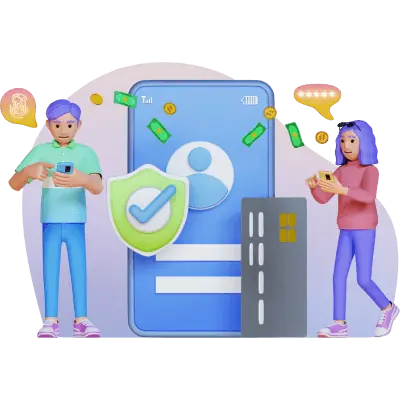
Ethical Considerations
- Data Privacy and Security: Privacy and data security are major concerns when it comes to using AI in dating, as it includes handling sensitive personal (and emotional) data.
- Authenticity of Emotions: There is ongoing debate surrounding the ethical implications of AI copying human emotions, and it raises questions about the sincerity of connections created with AI entities.
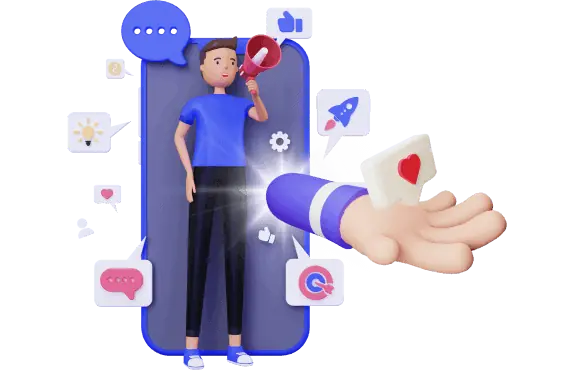
Societal Impact
- Changing Relationship Dynamics: AI companions could redefine what relationships mean, possibly leading to new social norms around companionship and intimacy.
- Accessibility and Inclusion: On a positive note, AI companions can provide companionship for those who struggle with social interactions, including people with certain disabilities or social anxieties.
It is important to carefully think through the ethical and societal impacts as we continue to integrate AI into our lives. It is important to carefully think through the ethical and societal impacts as we continue to integrate AI into our lives. We need to guarantee that technology improves our quality of life without compromising our basic principles.
Takeaways
AI companions are cool—that’s not up for debate. And using them for dating can be really beneficial for those who struggle to come up with a first message on a dating app; AI companions can give you an assist, just like a good wingman (or wingwoman) could.
They’re also convenient because they are always available—like, 4 am in the morning available, and since they’re unbiased, they can act as a mistral sounding board if you want to vent. But don’t confuse them with therapists: They can’t fix your problems for you.
The downside is that even though these AI companions are cool, they cannot feel or understand emotions the way humans can—no matter how much they can mimic us.
So, as we use AI more and more, it’s all about finding a good balance. There is absolutely nothing wrong with taking advantage of the benefits of AI, but don’t get confused and forget that real human connections are priceless.
